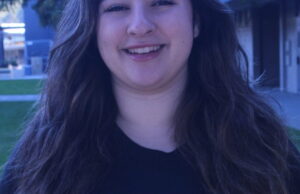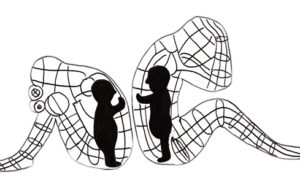Lies and Truths of High School
As young and naive children who watched Disney Channel and read Harry Potter, we dreamed about high school. We dreamed about tall swanky lockers that we’d decorate with posters and pictures, close friend groups that clashed against other groups, and bubbled-in scantrons of standardized tests that held the key to our success (well, maybe this part was a nightmare, not a dream). Little did we know that our lockers would actually be a tiny cubic foot, war most often happened internally in a friend group, and those scantrons don’t really define who you are as a person after all (although sadly they do still partially hold the key to your success). With a few years of experience under my belt, here’s my verdict on the lies and truths of high school life.
- Freshman year is easy. Junior year is hard.
Throwback to the good ol’ days of freshman year, right? If you’re like an average ninth grade student, you’d have one physical education class and one elective class, both of which probably don’t have a whole lot of work associated with it. Additionally, freshman year classes in the main subjects are relatively easy compared to those in ensuing years, with less homework and more lenient grading systems. Even though the trials of freshman year, just like those of any other year, really depend on the earnest of the student–the more proactive, the more busy the person will probably be–there’s no denying that the scale of toughness is at its minimum in freshman year and peaks in junior year, when everyone not only feels the pressure to perform in their class work and extracurriculars for college apps and but also has to tackle the standardized tests. Delirious all-nighters, multi-page essays in 24 hours, and borderline grades become normality in eleventh grade. Although no freshman will agree being a freshman is easy, you should enjoy it while you can. Verdict: Truth.
- Cliques will become super defined and mean.
Whether it was from watching Mean Girls or from our experience in middle school friend drama, we expect cliques to be terrible, but they really aren’t. Yes, we do find ourselves sticking together in groups and find shelter academically and emotionally in them. During lunch, it’s easy to spot various groups who play sports or do clubs together, or who just happen to click in terms of personality. However, the drama doesn’t happen between the “nerds” and “jocks” or “mean girls,” but rather among members within the same group, because these arguments are the natural and inevitable result of intertwining in so many aspects of life. Honestly, separate cliques don’t really interact menacingly at all, because we realize that issues which really affect us come from those closest to us, so why bother trying to pick meaningless fights with other people? Verdict: Lie.
- Teens are moody and depressed.
Not everyone will be officially diagnosed with clinical depression, but it seems like many students have a period of fallout with the ideals that they’ve been raised with since their childhoods. With more exposure to news and philosophies in English classes, we begin to question things like our existence, our faith, our purpose, and humanity. Why do we work so hard for making something of our lives if the universe will one day implode by the laws of physics and none of it will matter? How will we fit in society in a couple years? Will I make it in this big wide world? These questions all hit us with varying degrees of strength, but we just have to trust in the answers we eventually find. It’s no wonder that teens have been stereotyped as sad and angry beings, because we are sad and angry. Verdict: Truth.
- Lockers are your sentimental lifelines.
If you’ve watched clips from any Disney Channel show, you’ve seen the half-a-body-tall lockers painted a glossy color that stretch on either side of pristine hallways, in which the students decorate the insides with mirrors and posters, and would stow textbooks away so they can stroll to the next class in style. The little brown, dusty, cubic foot space that we call our lockers, then, was quite a surprise during freshman year orientation. At first, I really did try to use my locker, changing textbooks during breaks and storing sports bags in there, but after sophomore year it now exists as an often forgotten storage space. Small, far from class, and too dirty with outdoor dust to be trusted with valuables, lockers here in California just are not used that much. Verdict: Lie.
- I.B. courses make it hard to take APs and SAT subject tests.
For the academic freaks out there, I must sadly inform you that this is true. Not only are College Board and International Baccalaureate standards different, but the highest level of I.B. courses in science, math, English and history are only allowed to be taken during senior year, which makes it difficult to take AP and SAT tests: a lot of self-studying is required if you want to take them before senior year. While it might seem like this will put you in a disadvantaged position in college admissions, you need to remember that you’re not made entirely out of tests and grades, but also personality. Besides, I.B. offers a lot of insight into worldly topics and provides experience in working on long term projects that courses in colleges often demand. Verdict: Truth.



